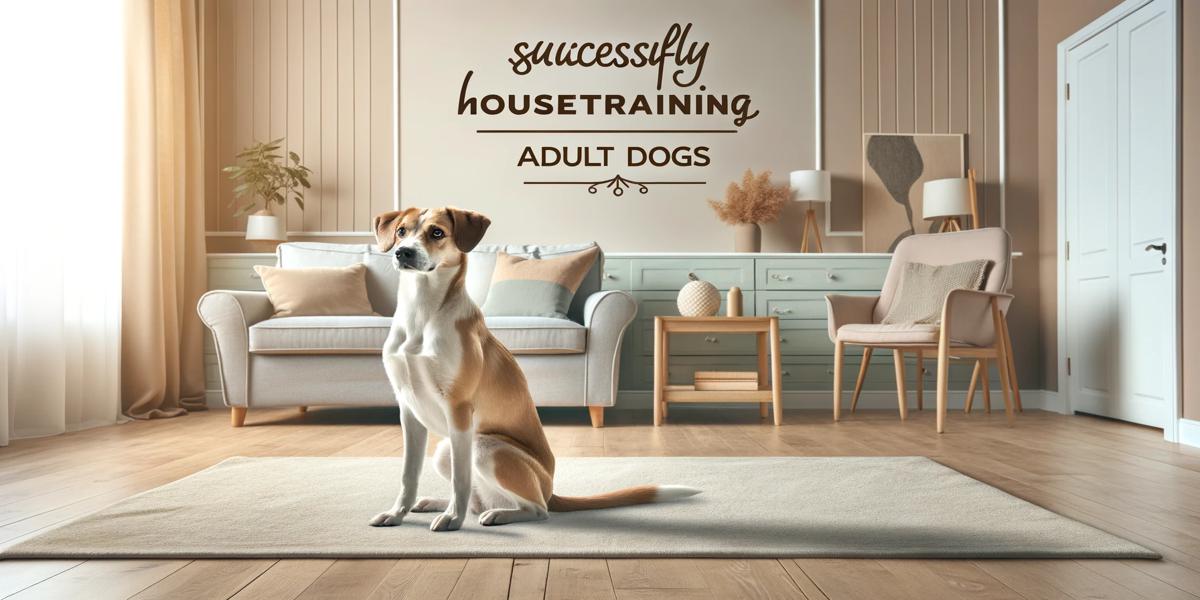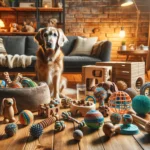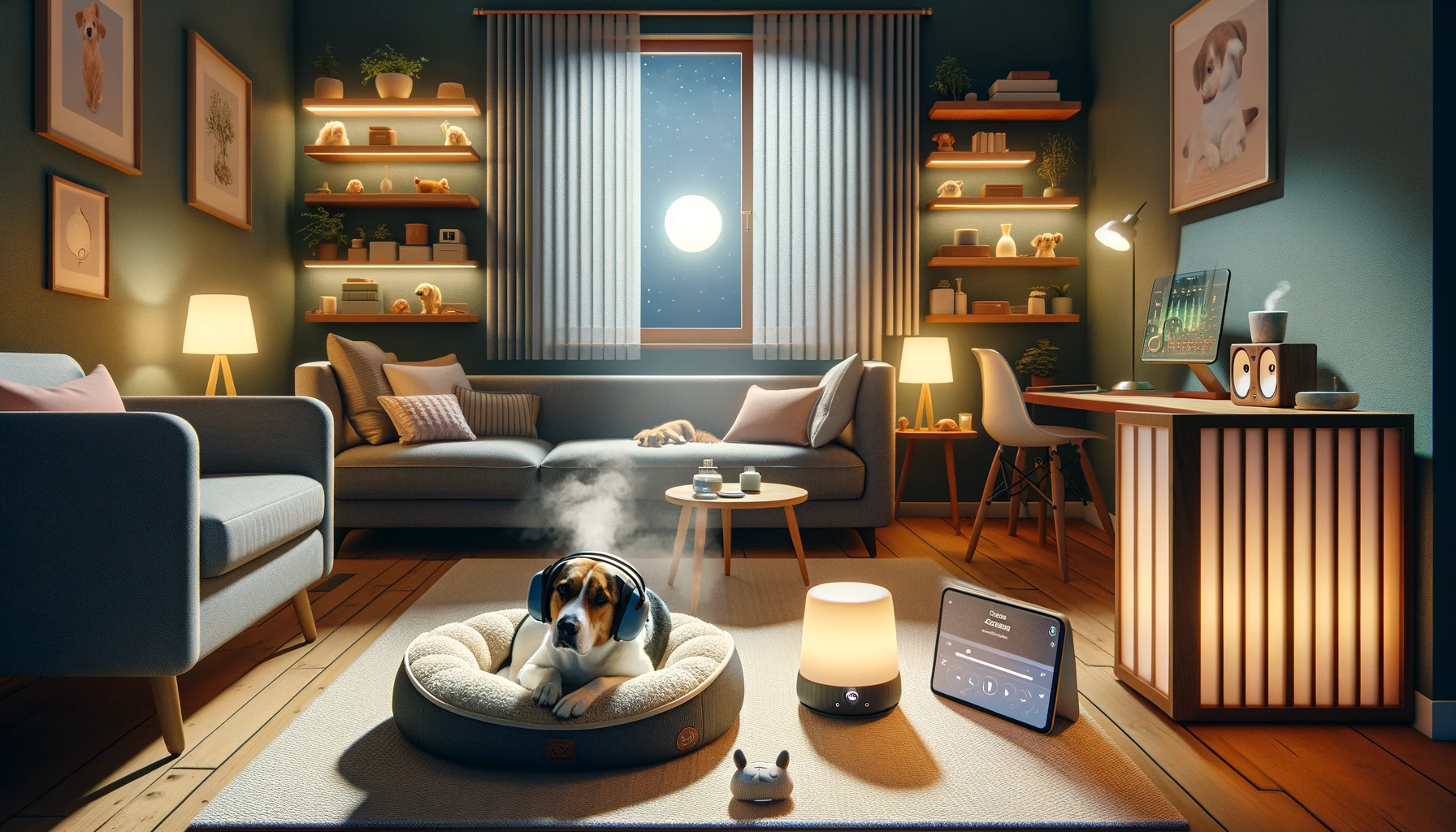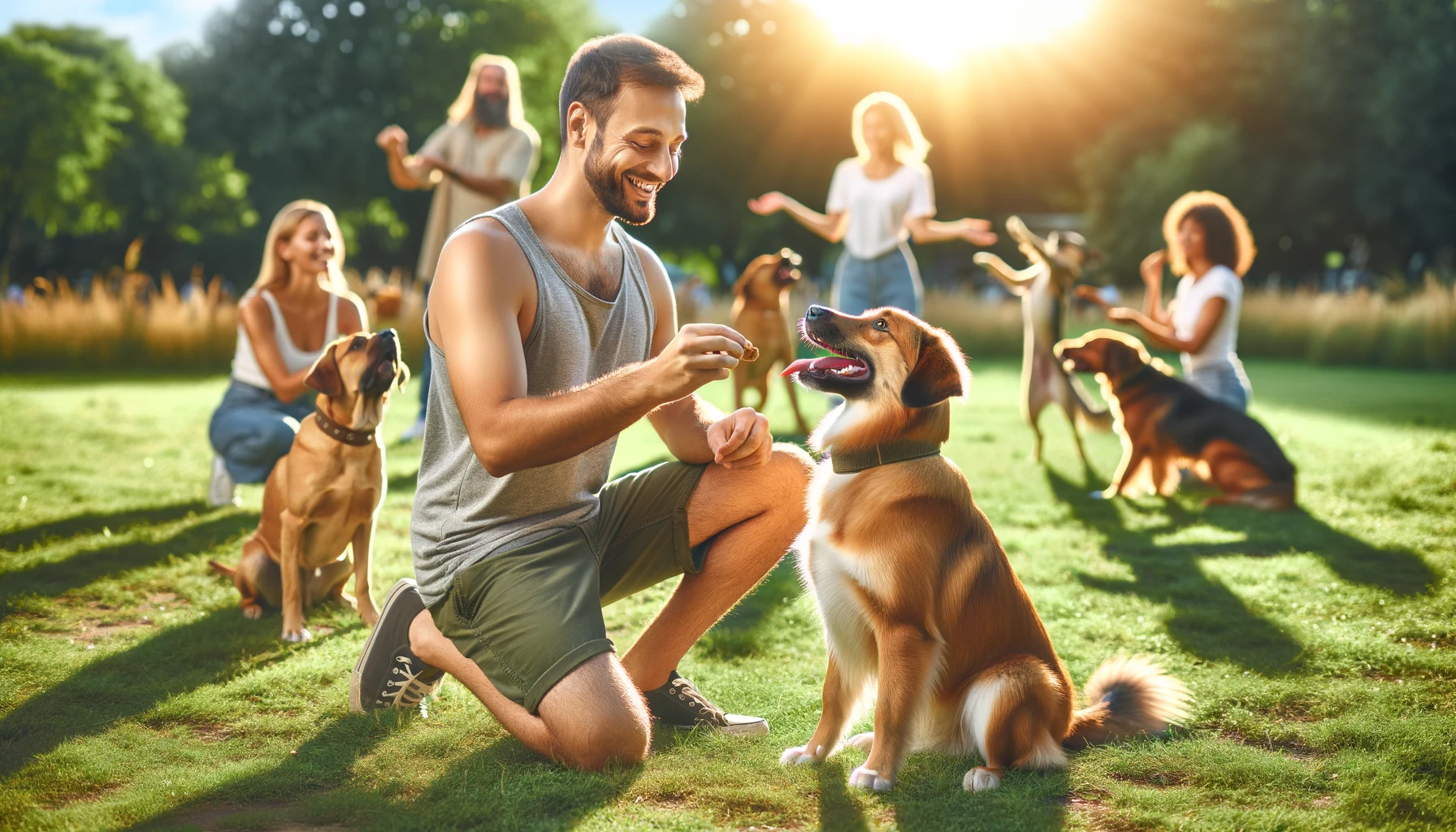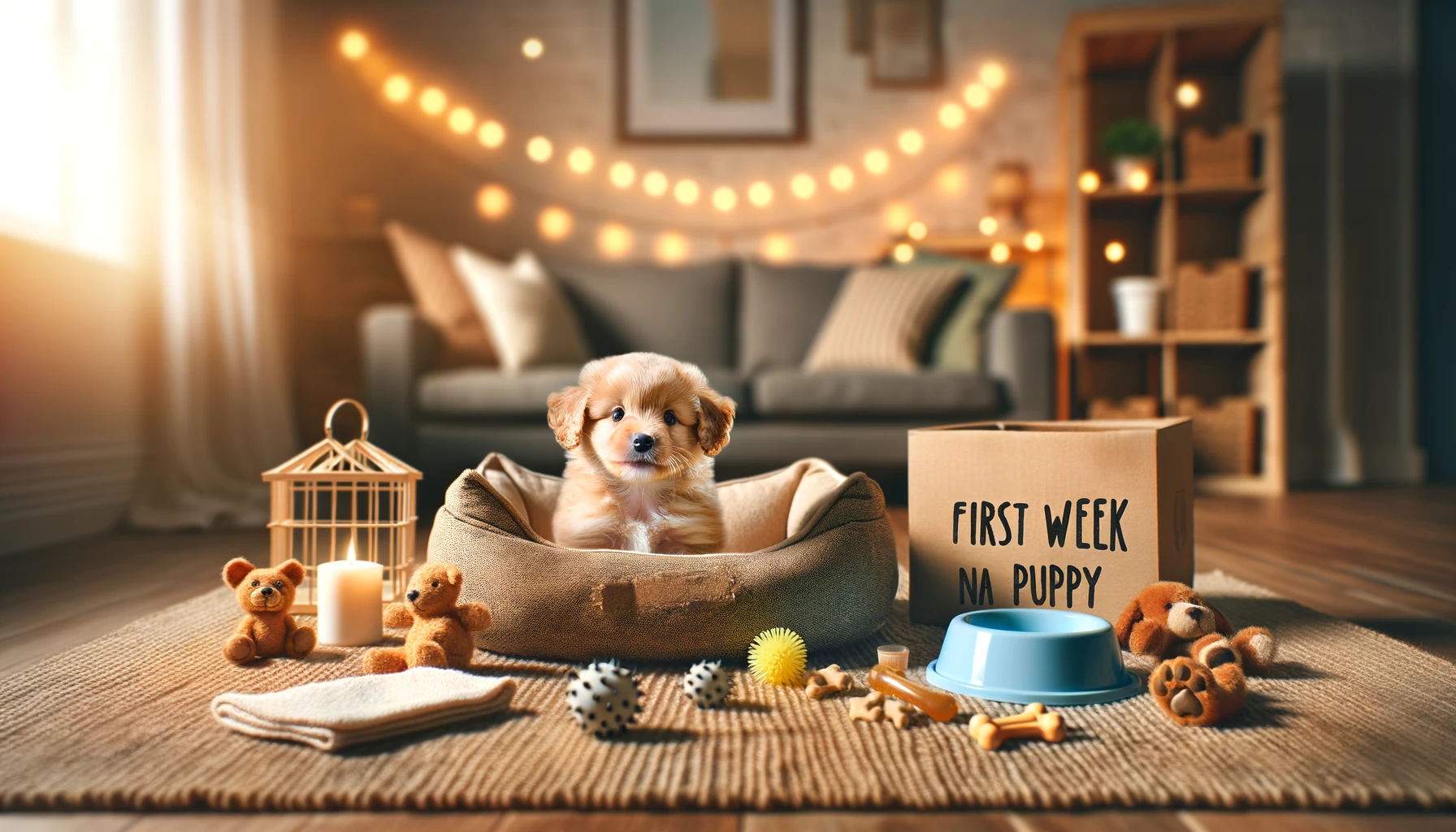Mastering the art of housetraining is a crucial step in fostering a harmonious relationship with our adult canine companions. While the principles of training may seem familiar from puppyhood endeavors, embarking on this journey with an older dog unveils its unique set of challenges and rewards. Unlike puppies, adult dogs come with their established habits and behaviors, making the process require a nuanced approach that balances patience and understanding.
Delving into the realm of housetraining for adult dogs illuminates the importance of consistency as a guiding beacon through this transformative process. Setting clear expectations and boundaries paves the way for effective communication between human and furry friend, bridging understanding and cooperation.
Patience emerges as an invaluable virtue on this odyssey; each triumph over setbacks reinforces not only desired behavior but also deepens bonds built on trust and mutual respect. Embracing positive reinforcement as a cornerstone empowers both pet parent and loyal companion to navigate challenges with optimism, reinforcing good habits while nurturing growth along the way.
Intrigued by these insights? Let us embark together on a voyage through practical tips tailored to housetrain your adult dog successfully—a journey filled with discovery, compassion, and unwavering dedication to shaping enduring companionship based on shared experiences rather than limitations!
Establishing a Routine for Successful Housetraining
Consistency is key when it comes to housetraining adult dogs. One of the most effective strategies is to establish a routine that not only helps your dog understand expectations but also reinforces good habits. Start by creating a feeding schedule that aligns with your desired potty times. By feeding your dog at the same times each day, you can predict when they’ll likely need to go outside.
This proactive approach sets both you and your furry friend up for success, making accidents less likely as their body learns the schedule.
In addition to a consistent feeding schedule, designating specific potty areas can significantly aid in housetraining adult dogs. Dogs are creatures of habit and marking certain spots in your yard or near your home as designated bathroom areas helps them associate those places with relief.
Through repetition and positive reinforcement, these designated potty spots become familiar territory for quick and efficient bathroom breaks. Remember, patience is crucial during this training phase; consistency paired with clear signals will eventually lead to reliable habits in your adult canine companion.
Prevention Strategies to Avoid Accidents Indoors
Consistent supervision is paramount when housetraining adult dogs. By actively monitoring your pet’s behavior, you can anticipate their needs and intervene before accidents occur. Make use of baby gates or close doors to restrict access to areas where accidents are more likely to happen. Remember, prevention is key in establishing good habits.
When unsupervised, consider utilizing a crate as a safe space for your dog. Dogs naturally avoid soiling their living spaces, making crates an effective tool in reinforcing bathroom etiquette. Ensure the crate is appropriately sized for comfort and provide enriching toys or treats to make it a positive environment. Employing confinement during unsupervised periods not only prevents accidents but also aids in creating a sense of routine and consistency for your furry friend.
Reacting appropriately to accidents is crucial in avoiding negative reinforcement. If an accident does occur, remain calm and refrain from punishing the dog. Instead, clean up the mess thoroughly with enzymatic cleaners that eliminate odors – this helps prevent repeat offenses by removing scent markers that may attract them back to the same spot
Positive Reinforcement: The Key to Unlocking Your Dog’s Potential
In the world of dog training, positive reinforcement stands out as a powerful tool for shaping behaviors. Reward-based training techniques offer a fresh and effective approach to housetraining adult dogs. By focusing on praising good behavior, you can create a harmonious environment where your canine companion learns through encouragement rather than fear or punishment.
When your dog exhibits the desired behavior—whether it’s eliminating in the designated spot or following commands promptly—immediate praise reinforces their actions positively. Verbal affirmations like good job or well done coupled with gentle petting or even small treats go a long way in communicating to your furry friend that they’re on the right track. Remember, consistent and enthusiastic praise not only motivates your dog but also strengthens your bond with them, making training sessions more enjoyable for both parties.
So, next time your adult dog responds appropriately during housetraining, take a moment to shower them with admiration and rewards. Embrace the power of positivity in training; watch as your four-legged friend thrives under supportive guidance, eager to please and quick to learn. Through praising good behavior consistently, you pave the way for lasting habits built on trust, respect, and joyful cooperation between you and your beloved pet.
Overcoming Housetraining Setbacks: Navigating Challenges with Adult Dogs
When it comes to housetraining adult dogs, setbacks are not uncommon. Your furry friend may have accidents indoors or struggle to grasp the training concept initially. It’s crucial to remain patient and persistent during these trying times. One of the common challenges with adult dogs is their established habits and potential behavioral issues that can hinder the learning process. Older dogs may have ingrained patterns that make breaking away from past behaviors a bit more challenging than with puppies.
To address setbacks effectively, consider revisiting your training approach. Troubleshooting tips like reinforcing positive behavior consistently, increasing supervision, refining your reward system, and adjusting the schedule can help in overcoming obstacles.
Remember that each dog is unique in how they respond to training methods; therefore, it might take some trial and error to find what works best for your canine companion. By staying resilient and adaptable in your training techniques, you’ll be better equipped to tackle setbacks head-on and guide your adult dog towards successful housetraining.
Celebrating Milestones in Your Dog’s Progress
As you embark on the journey of housetraining your adult dog, it’s essential to celebrate the milestones along the way. Every small victory, whether it’s a successful trip outside or a decrease in accidents indoors, is worth acknowledging. By recognizing and celebrating these improvements, you not only motivate yourself but also reinforce positive behavior in your furry companion.
Consider creating a visual chart or journal to track progress and commemorate each achievement. Celebrating milestones can create a sense of accomplishment for both you and your dog, strengthening your bond as you work together towards reaching housetraining success.
Recognizing Improvements
One key aspect of housetraining adult dogs is being attentive to signs of progress. Whether it’s fewer indoor accidents, increased signaling when they need to go out, or quicker learning of designated potty areas, take note of these advancements. Recognizing improvements allows you to adjust your training techniques accordingly and build upon what is working well for your dog.
Positive reinforcement plays a crucial role here – praise and rewards for good behavior help solidify these habits and encourage further growth. By actively acknowledging the positive changes in your dog’s behavior, you provide valuable feedback that contributes to their overall training success.
Reinforcing Good Habits Consistently
Consistency is key when reinforcing good habits during housetraining efforts with adult dogs. Establishing a routine that includes regular bathroom breaks, positive reinforcement techniques like treats or verbal praise after successful outings, and clear communication signals will aid in reinforcing desired behaviors consistently.
Remember that consistency breeds reliability – by maintaining a structured approach to housetraining and consistently rewarding good habits while correcting mistakes gently but firmly; you set clear expectations for your dog which aids them in understanding what is expected from them effectively.

